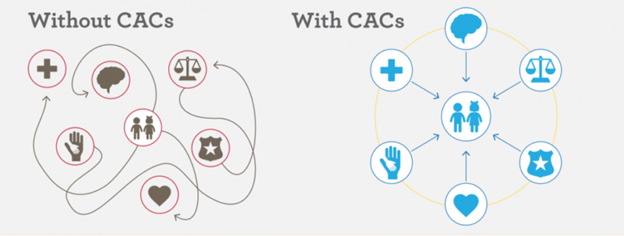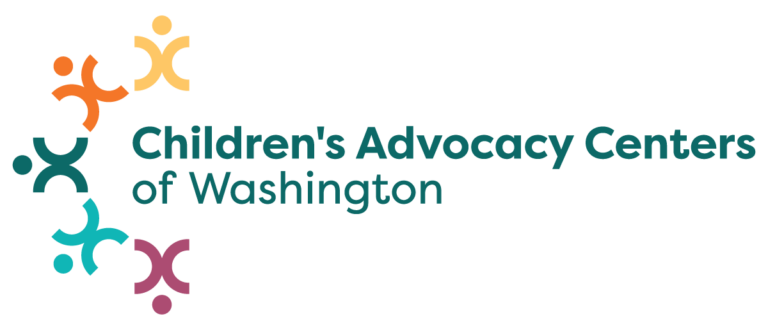- (360) 753-3703
- 1217 Cooper Point Road SW, Suite 6, Olympia, WA 98502
Child abuse and neglect have been identified, among other criteria, as adverse childhood experiences (ACEs). A landmark study by the Centers for Disease Control and Kaiser Permanente (Adverse Childhood Experiences Study (ACEs) revealed that, left unchecked, a high number of ACEs can have a significant negative impact on an individual well into adulthood.
A CAC’s mission is to promote and foster safety, healing and justice for children and families. The common focus of the MDT is to foster healing and avoid potential re-traumatization of children and families by the systems designed to respond to their needs.
Access to specialized mental health services is critical for abused children and their families to move forward in the healing process. As part of the multidisciplinary response, CACs connect children with counseling provided by professionals with specialized training in trauma-focused, evidence-supported, mental health treatment and support designed to meet the unique needs of the child and non-offending caregivers.
When police or child protective services believe a child is being abused, the child is brought to the CAC – a safe, child focused environment – by a caregiver or other “safe” adult. At the CAC, the child tells their story once to a trained interviewer who knows the right questions to ask in a way that does not retraumatize the child. Then, a team that includes medical professionals, law enforcement, prosecuting attorneys, mental health, child protective services, victim advocacy and other professionals make decisions together about how to help the child based on the interview. CACs provide access to therapy and specialized medical exams, plus victim advocacy, case management, and other services. This is called the multidisciplinary team (MDT) response and is a core part of the work that CACs do in Washington and across the country.
Children’s Advocacy Centers provide services such as:
What is the National Children’s Alliance?
NCA is the national association and accrediting body for a network of more than 850 Children’s Advocacy Centers – CACs. NCA provides support, advocacy, quality assurance, and national leadership for CACs, all to help support the important work that CACs do in communities across the country. CACs provide a coordinated, evidence-based response to children who have been abused in all 50 states.
What are ACEs?
ACEs are serious childhood traumas that result in toxic stress that can harm a child’s brain. This toxic stress may prevent a child from learning, from playing in a healthy way with other children, and can result in long-term health problems. LEARN MORE
What is a CAC?
To understand what a Children’s Advocacy Center (CAC), is, you must understand what children face without one. Without a CAC, the child may end up having to tell about the worst thing that has happened in his or her life over and over again, to doctors, police officers, lawyers, therapists, investigators, judges, and others. They may have to talk about that traumatic experience in a police station where they think they might be in trouble or may be asked the wrong questions by a well-meaning teach or other adult that could hurt the case against the abuser.


CACWA works with CACs and multidisciplinary partners (MDTs) to facilitate a coordinated response to allegations of child abuse and supports professionals in the field through training, technical assistance, research, funding, and advocacy.
